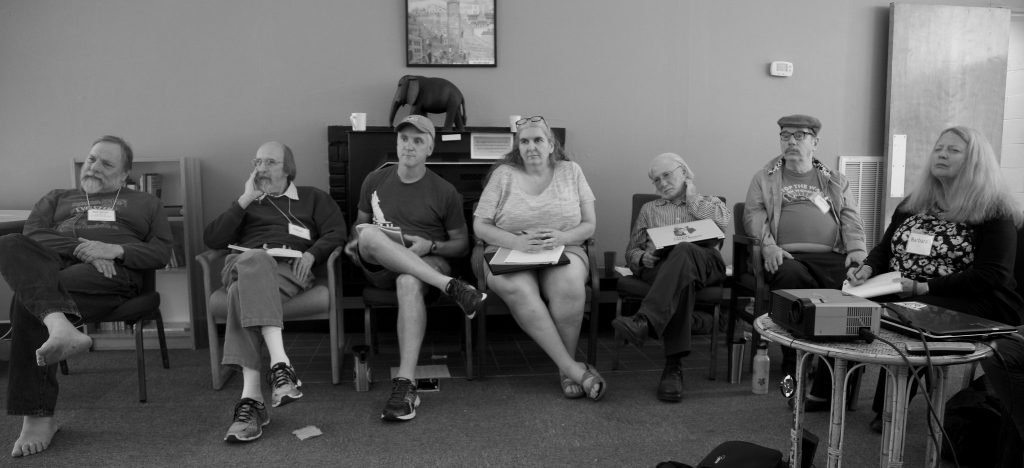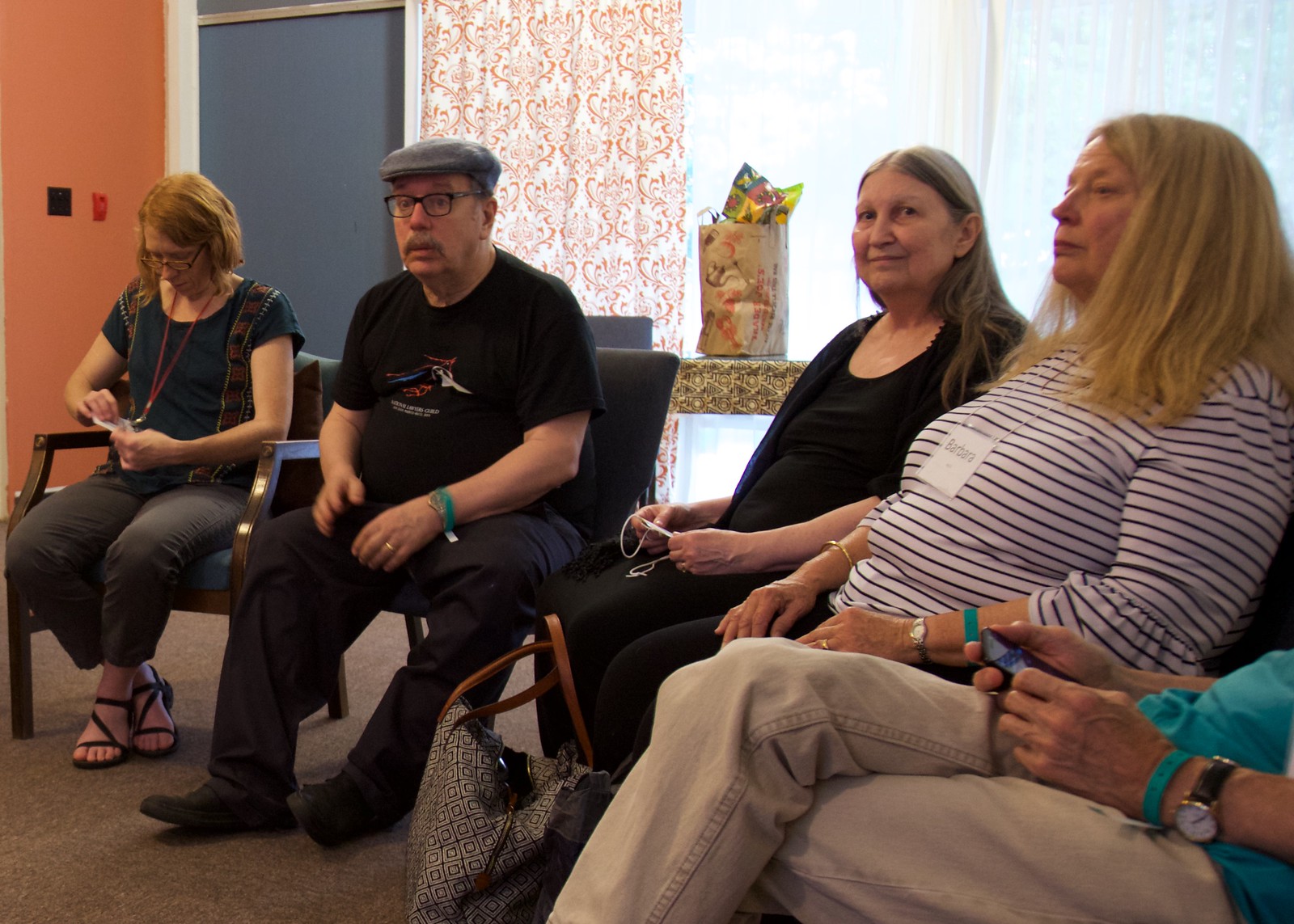By Anne Cowan
The GI Rights Network held a very successful annual meeting on May 18-21 at Stony Point Center, just north of New York City. Stony Point Center is an Intentional Village which includes permanent residents, diversity, healthy living, farming and conference facilities. Meals were delicious, weather perfect and meeting/sleeping accommodations very comfortable.
Eighteen participants represented the five current nodes of the GIRN; MLTF, IVAW, Civilian Medical Resource Network, and a veteran working on a future GIRN node. Ryan Holleran, an IVAW member from Portland, OR, who also works with GI Voice (Coffee Strong) in Seattle, shared his ideas for forming a new node of the Hotline in Portland. He found enthusiasm, encouragement and ongoing support from the GIRN.

Prior to the serious business of games, fun and relaxing in the evening, there were workshops with information for counseling on the Hotline, and lots of discussion about how to improve the structure of the Hotline, how to attract new counselors and possible modes of training new counselors. There was also a meeting of the GIRN Board and of the GIRN Council.
Workshops included the topics of Military Sexual Trauma, Extended Advocacy for Clients, VA Disability Benefits, National Guard cases, Article 138, Dissent within the Military and Use of Civilian Medical Resource Network (CMRN).
Howard Waitzkin, director, Laura Muncy, staff, and Jon Reisdorf, volunteer and GIRN counselor in Arcata, CA, presented an update on using the CMRN. Case studies show that the independent health evaluations made available through CMRN have been critical in many cases. Half of all their cases include suicidal ideation. Waitzkin suggested that more GI Hotline counselors should do the Intake Interviews of the clients whom they refer. The Intake is the first step after the referral has been entered into CMRN. This is completed using online questionnaires and can be conducted by those without further mental health credentials. CMRN demonstrated exactly how this is done.
Jon Reisdorf led a workshop on how he has used intensive advocacy for select clients. This means that he becomes more involved, making calls, writing letters and using personal contacts on behalf of the client. He has been successful in some very complicated cases where help beyond phone conversations with the client was needed. He develops a rapport, understanding their story so a plan of action is developed. He finds that the telling of the client’s personal story to the military can be effective.
Steve Woolford led a discussion of Reserve and National Guard cases. The most frequent issues dealt with are the commuting distance regulations and general grievances. Use of Article 138 was encouraged.
A summary of a new data collection project of the Center for Conscience and War was presented. The goal of this new project is to better the analysis of statistics of their Hotline work. This evolved into a discussion of how data should be tracked by the entire GIRN.
A special honor was to have David Coombs tell us about his work representing Chelsea Manning, via Skype. He reports that Chelsea Manning is now doing well and is working to get on with her life. She remains in the military on appellate leave, although she is not required to wear a uniform and can travel as she pleases. All present thanked Coombs for his work and agreed that he was an excellent choice to represent Manning.
Important discussion took place concerning the future of the Network. In spite of increased number of calls this past year and fewer counselors, the Network is functioning well with quality counseling. It seems critical that there be ongoing training of new counselors and that there is a system to support those new counselors who are not part of a local node.
Better use of the Helping Out listserve for counselors and use of social media were discussed with many opinions, pros and cons.
The Annual Conference of the GIRN is a place for those interested in justice in the military system to get together, learn more and be generally supported in their work.
Anne Cowan is a GI Rights Network counselor and MLTF member in Manhattan, Kansas.



